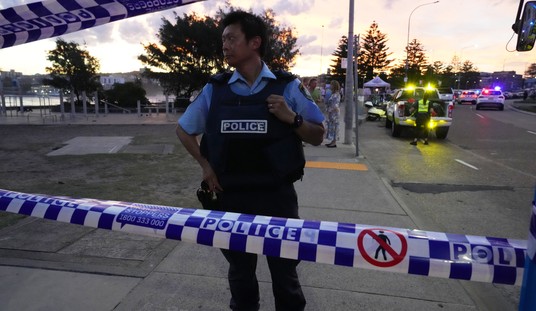WASHINGTON — On Thursday morning, the heads of America’s intelligence services went to Capitol Hill to testify before the House Permanent Select Committee on Intelligence on worldwide threats to the United States. We won’t know what was said in the committee’s closed sessions until it’s leaked by one of the participants. But to paraphrase former Defense Secretary Donald Rumsfeld, based on their public testimony, what we now know about what our intelligence services don’t know ought to alarm us.
The director of national intelligence, retired Air Force Lt. Gen. James Clapper, stunned the committee by describing Egypt’s Muslim Brotherhood — the organization that has co-opted pro-democracy protests in Cairo’s Tahrir Square — as “a very heterogeneous group, largely secular, which has eschewed violence and has decried al-Qaida as a perversion of Islam. … They have pursued social ends, a betterment of the political order in Egypt.”
This statement was so at variance with reality that DNI spokeswoman Jamie Smith subsequently was compelled to issue an explanation: “To clarify Director Clapper’s point, in Egypt the Muslim Brotherhood makes efforts to work through a political system that has been, under (Hosni) Mubarak’s rule, one that is largely secular in its orientation. He is well aware that the Muslim brotherhood is not a secular organization.”
Shortly after Clapper’s astounding claim, CIA Director Leon Panetta told the committee, “There is a strong likelihood that Mubarak may step down this evening.” He then went even further by noting that such a development “will be significant in terms of where the hopefully orderly transition in Egypt will take place.” It turns out he was dead wrong on both counts.
In response to Rep. Sue Myrick’s question about the Muslim Brotherhood’s role in perpetrating violence against the U.S. and our allies, FBI Director Robert Mueller contradicted the DNI by observing, “Elements of the Muslim Brotherhood here and overseas have supported terrorism.” He then had the good sense to decline going further in public, offering instead to “provide further information” in closed session.
Less than six hours after this drama unfolded in Washington, Mubarak went on government-controlled television to tell the world he isn’t going anywhere any time soon. The protesters in Tahrir Square were stunned. So was the Obama administration, thanks to yet another dramatic failure on the part of our intelligence services.
Two hours after Mubarak’s televised announcement that he was transferring some power to his hand-picked vice president, Omar Suleiman — and staying in Cairo — the White House issued yet another statement urging that “the voices of the Egyptian people must be heard.” Now everyone is asking what’s next. The truth is that nobody knows.
Good intelligence is essential, and poor intelligence is disastrous; it is a lesson American administrations have been relearning since Pearl Harbor. It was a problem that was supposed to get fixed after the U.S. Embassy was sacked in Tehran in 1979 — and again after the failure of Operation Eagle Claw in the Iranian desert in 1980. We were told it really would be cured by the massive reorganization of our intelligence community after the terror attacks of 9/11. It clearly hasn’t worked.
Our intelligence services are beset with attention-deficit disorder. In the aftermath of 9/11, we were told our “intelligence problem” would go away if we tore down “information silos” and “firewalls,” created “fusion centers,” and “streamlined” the dissemination of information among agencies. As we now know, that just made it easier for organizations such as WikiLeaks — and foreign adversaries — to gain access to classified information.
The Obama administration has compounded the problem by variously defining the major threats to U.S. national security as climate change, right-wing extremism, homegrown terrorists and economic collapse. Meanwhile, our risk-averse “intelligence managers” have all but eliminated the collection of human intelligence, the key to protecting U.S. troops fighting an insurgency in Afghanistan and anticipating events like the one we now see in Egypt.
Those who testified before the committee this week defended their work by claiming to have warned “for years” about “potential adverse consequences” in Middle East autocracies that deny their people economic and political freedom. But the inability to forecast how the present unrest was spreading east from Tunisia — to Egypt, Jordan, Yemen and perhaps beyond — is a direct consequence of a profound failure in human intelligence collection.
No matter what self-serving “leaders” now claim about forecasts of “Egyptian instability,” nobody saw this fire coming. The entire Egyptian military hierarchy was in Washington when the riots began in Cairo. Our numbness on the Nile is the consequence of not having enough “boots on the ground” to even know who loosed the violence — or the names, addresses and intentions of those who intend to take power. If it turns out to be the Muslim Brotherhood, we should be very alarmed indeed.
Numbness on the Nile

Advertisement







Join the conversation as a VIP Member